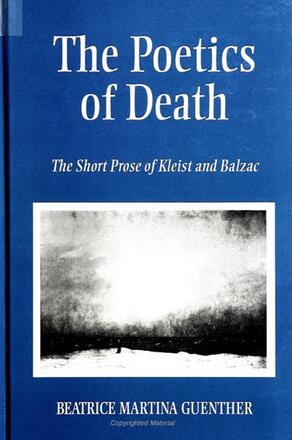
The Poetics of Death
The Short Prose of Kleist and Balzac
Alternative formats available from:
Discusses literary representations of death to explore the relation between writing and death--death understood as both the death of the individual and the death of meaning.
Description
Traditionally, the act of writing constitutes a challenge to the finality of death. Yet "writing" as a subject for literary texts has its own tradition of imagery whose rhetoric is associated with loss rather than immortality. The limit of death seems to force a more explicit analysis of the process of writing. Writers consider the impact of their work on their readers, or re-articulate the link between the written text and the subject it is meant to represent. Each writer constructs a "subversive" text. The conjunction of writing and death—besides highlighting or demystifying the creative act—leads in each case to a decidedly critical stance. Guenther examines how Kleist's and Balzac's representations of death bring with them a critical awareness that calls attention to the historical context in which the texts are produced.
Beatrice Guenther is Assistant Professor of Modern Languages and Literatures at the College of William and Mary.
Reviews
"Especially impressive is the way Guenther shows how the alliance between death and writing can produce two different but fascinating effects: in Kleist, the subversion of the idea of Bildung, and in Balzac, the ingenious strategies of 'endless survival,' most obviously symbolized in the 'totalizing' aspirations of the Comédie Humaine and in his 'exorcism of doubles.'" — Maria DiBattista, Princeton University
"A book that goes to the very grounds of our anxieties and relativities, a book that seeks to explore how literature has been able to deal with the most extreme of human margins." — Virgil Nemoianu, Catholic University of America